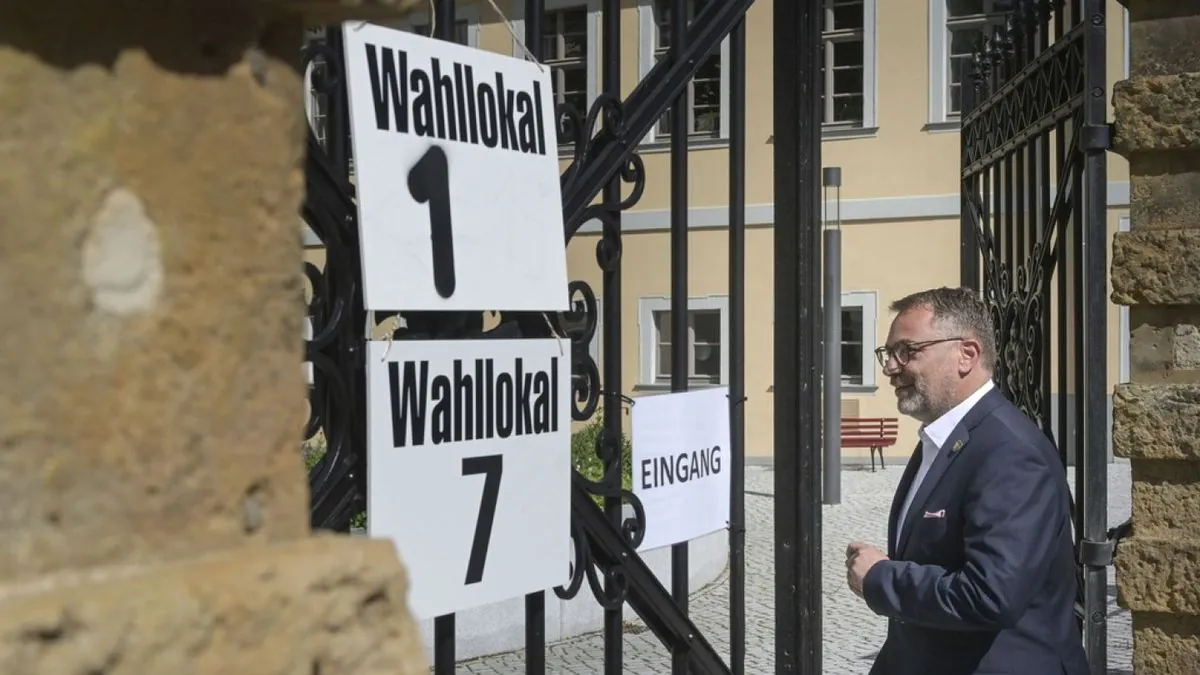Far-right AfD poised for historic wins in eastern German elections
Two eastern German states head to polls, with far-right AfD expected to make significant gains. The elections could reshape regional politics and impact the federal government's stability.

On September 1, 2024, voters in the eastern German states of Thuringia and Saxony will cast their ballots in regional elections that could mark a significant shift in the country's political landscape. The far-right Alternative for Germany (AfD) party is projected to achieve unprecedented success, potentially winning its first state election since its founding in 2013.
In Thuringia, the AfD is leading polls with 30% support, while in Saxony, it's neck-and-neck with conservative parties at 30-32%. This surge in popularity for the AfD could result in the first instance of a far-right party securing the most seats in a German state parliament since the end of World War II.
Despite potential electoral victories, the AfD is unlikely to form governments in either state due to other parties' refusal to collaborate with them. However, their strong showing, along with the rise of the newly formed Sahra Wagenknecht Alliance (BSW), is expected to complicate coalition-building efforts.

Both the AfD and BSW have gained traction in eastern Germany by capitalizing on concerns about immigration, skepticism towards the European Union, and a more Russia-friendly stance. These issues resonate particularly strongly in the former East German states, where economic disparities and cultural differences with western Germany persist more than three decades after reunification.
The elections are also seen as a referendum on Chancellor Olaf Scholz's federal coalition government. All three parties in the coalition – the Social Democrats (SPD), Greens, and Free Democrats (FDP) – are projected to lose votes, with the latter two at risk of not meeting the 5% threshold required to enter parliament.
"The state elections have the potential to trigger an earthquake in Berlin."
This potential "political earthquake" reflects growing discontent with the federal government, partly due to internal disagreements within the ideologically diverse coalition. A poor showing in these eastern states is likely to exacerbate tensions in Berlin, although analysts do not expect the coalition to dissolve before the next federal election in September 2025.
The rise of populist parties in eastern Germany highlights the ongoing East-West divide in the country. Despite recent high-profile investments in sectors such as chipmaking and electric vehicle production, many eastern Germans remain skeptical of the established political order and harbor a greater affinity for Russia.
As voters head to the polls, the outcome of these elections could have far-reaching implications for German politics at both the state and federal levels. The results will likely reignite debates about immigration, economic policy, and Germany's role in Europe and the world.


































